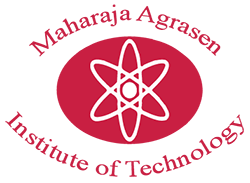Teaching Methodology
- Concept-Based Learning: Emphasis on understanding core concepts through a mix of theoretical lessons and practical applications.
- Laboratory-Intensive Training: Emphasizes regular lab sessions where students gain practical experience with software tools, programming languages, and hardware systems.
- Project-Based Learning: Incorporates semester-long projects that allow students to apply their knowledge to design, develop, and implement solutions.
- Industry-Integrated Curriculum: Collaboration with industry partners to incorporate current trends and technologies into the curriculum (optional), ensuring students are industry-ready.
- Interactive Lectures: Utilizes interactive teaching methods such as case studies, problem-solving sessions, and live coding to engage students actively.
- Continuous Assessment: Regular quizzes, assignments, and presentations to ensure consistent learning progress and understanding.
- Mentorship and Guidance: Faculty mentors assigned to students for personalized guidance through faculty mentorship programs, aiding students in academic and career development.
- Workshops and Seminars: Regular workshops, guest lectures, and seminars by industry experts and alumni to provide insights into the latest developments in the field.
- Internships and Industry Exposure: Mandatory internships and industry visits that provide real-world experience and practical exposure.
- Ethical and Social Responsibility: Integrates lessons on professional ethics, social impact, and sustainability, ensuring students are responsible global citizens.
- Soft Skills Development: Training sessions focused on communication, teamwork, leadership, and other essential soft skills, preparing students for professional environments.
- Blended Learning: Combines traditional classroom instruction with online resources, flipped classrooms, and self-paced study, enhancing flexibility in learning.
- Collaborative Learning: Encourages group work and peer-to-peer interaction through team projects, coding competitions, and hackathons to foster collaboration.
- Research Driven Teaching: Introduces students to research methodologies encouraging students to engage in research from early on promoting innovation.
These methodologies are designed to produce well-rounded graduates and to equip students with the technical skills, critical thinking, and adaptability needed to excel in the evolving field of Computer Science and Engineering.






